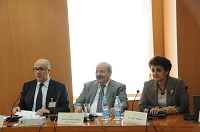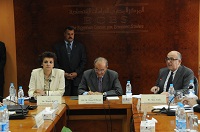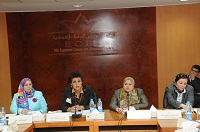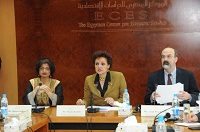Egypt’s resilience to external shocks could be attributed to macroeconomic reforms undertaken over the past decade, as evident by more diversity of sectoral sources of growth, fiscal reforms that availed the space to introduce timely countercyclical packages, and monetary reforms that increased the ability of the Central Bank to weather external shocks and contain domestic […]
and attempted to identify conditions under which democratizations would yield subsequent high and inclusive economic growth. Specifically, it considered the impact of alternative democratic forms of democracy (e.g., parliamentary versus presidential democracy) on fiscal and trade policies implemented after democratization. A large empirical literature in economics and political sciences has addressed these issues. Professor Guido […]
Specifically, this roundtable discussion attempted to: 1. assess Egypt’s progress so far and identify specific areas where the country has lagged behind relative to comparators;2. highlight the structural and policy deficiencies that have negatively impacted Egypt’s competitiveness; and 3. present specific policy recommendations addressing shortcomings and leading to greater competitiveness.
The discussion in this roundtable addressed the implications of currency wars for the Egyptian economy, mainly a widening current account deficit and the resulting consequences of inflationary pressures, asset bubbles and high sterilization costs. Policy options to mitigate these threats, including the need to resort to protectionist trade measures and capital controls, were discussed.
How should the central bank respond to the persistent and potentially long lasting relative price shock? Does such shock pose a challenge for the current monetary policy framework? How do multiple shocks complicate the conduct of monetary policy? Given the complexity of the economy, are the conventional instruments already in place enough? These are the […]










